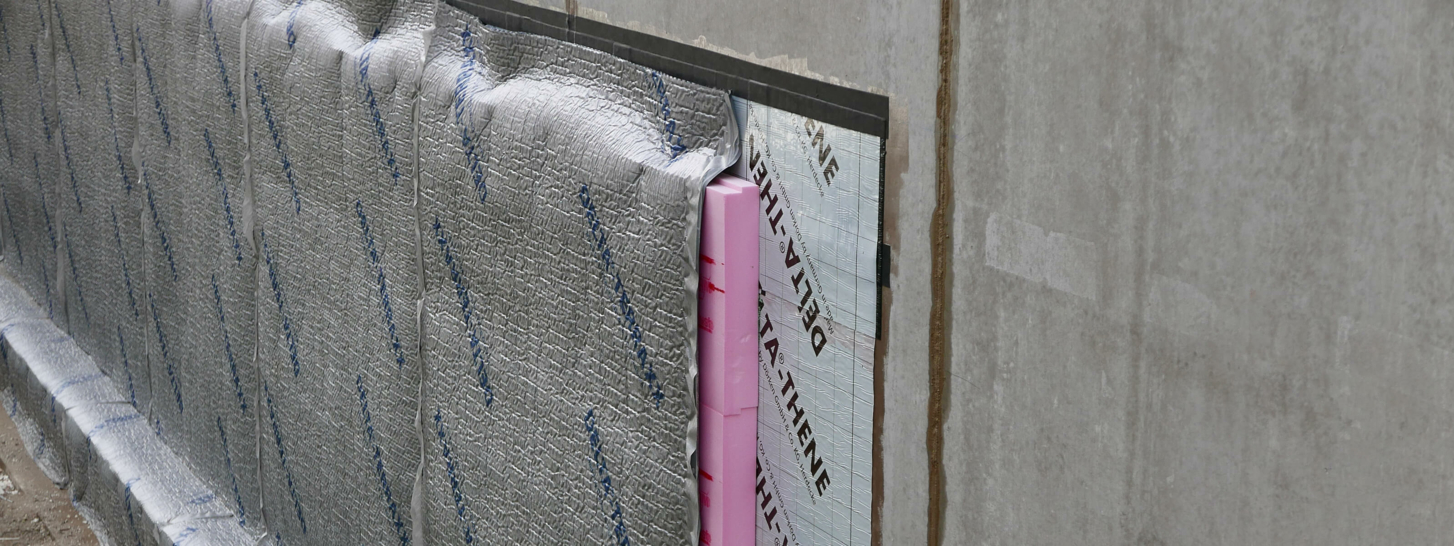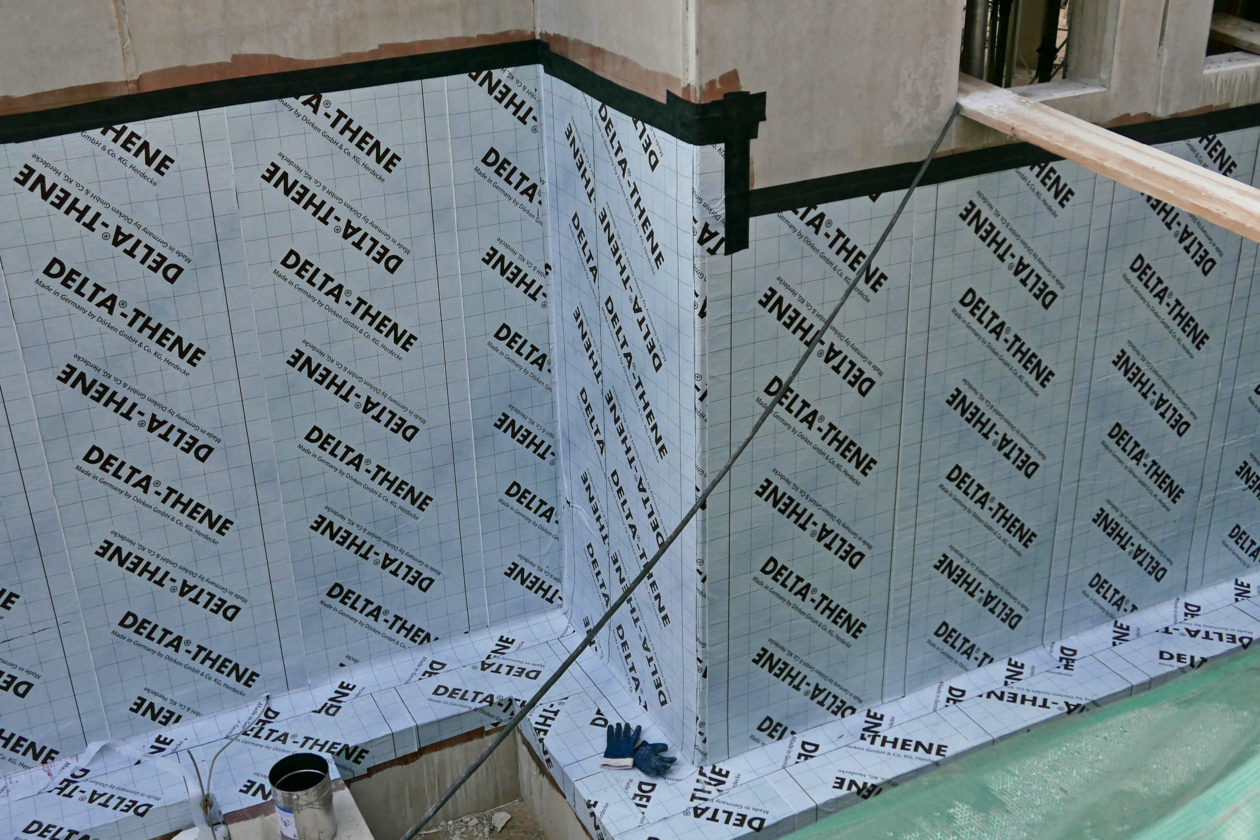The basement sealing is the main component of the basement protection. It should always be tailored to the individual requirements of the environment and planned with care. For this purpose, first of all, the existing soil conditions must be clarified. In addition to the load-bearing capacity of the subsoil, its seepage capacity, the existence of water veins or the height of the groundwater level are explored and inspected in the context of a subsoil survey.
If the basement is based on a floor slab made of normal reinforced concrete with basement walls built on top of it, all surfaces being in touch with the ground must be sealed according to the water action (formerly also referred to as "load case"). A so-called "black tank" can be used in case of the water or groundwater pressure. This is usually a multi-layer bituminous membrane seal entirely enclosing the basement, including the floor slab, from the outside.
As an alternative, a so-called "white tub" can be planned as well. In this case, the basement is made entirely of waterproof concrete (in German, the so-called WU Beton). In addition to a special concrete mix, in this context what particularly counts, is the reinforcement. This must ensure that crack widths are limited to a permissible minimum due to the shrinkage process of the concrete. In the area of the joints between individual components and/or between the walls and the floor slab, the sealing is carried out by using sealing tapes in the concrete.
In the case of soil conditions such as soil moisture or seepage water, a traditional sealing will suffice. This type of sealing includes the sealing of the floor slab, the cross-sectional seals (horizontal barrier or masonry barrier) inside the walls and the sealing of the outer walls of the basement.
The type of sealing of the basement also determines the construction type of the basement itself.
 Belgium nederlands
Belgium nederlands Belgium français
Belgium français Canada english
Canada english Canada français
Canada français China chinese
China chinese Czech Republic čeština
Czech Republic čeština Deutschland deutsch
Deutschland deutsch France français
France français Hungary magyar
Hungary magyar International english
International english Italy italiano
Italy italiano Netherlands nederlands
Netherlands nederlands Poland polski
Poland polski Russia русский
Russia русский Slovakia slovenčina
Slovakia slovenčina Switzerland français
Switzerland français Switzerland deutsch
Switzerland deutsch Turkey Türkçe
Turkey Türkçe USA english
USA english


